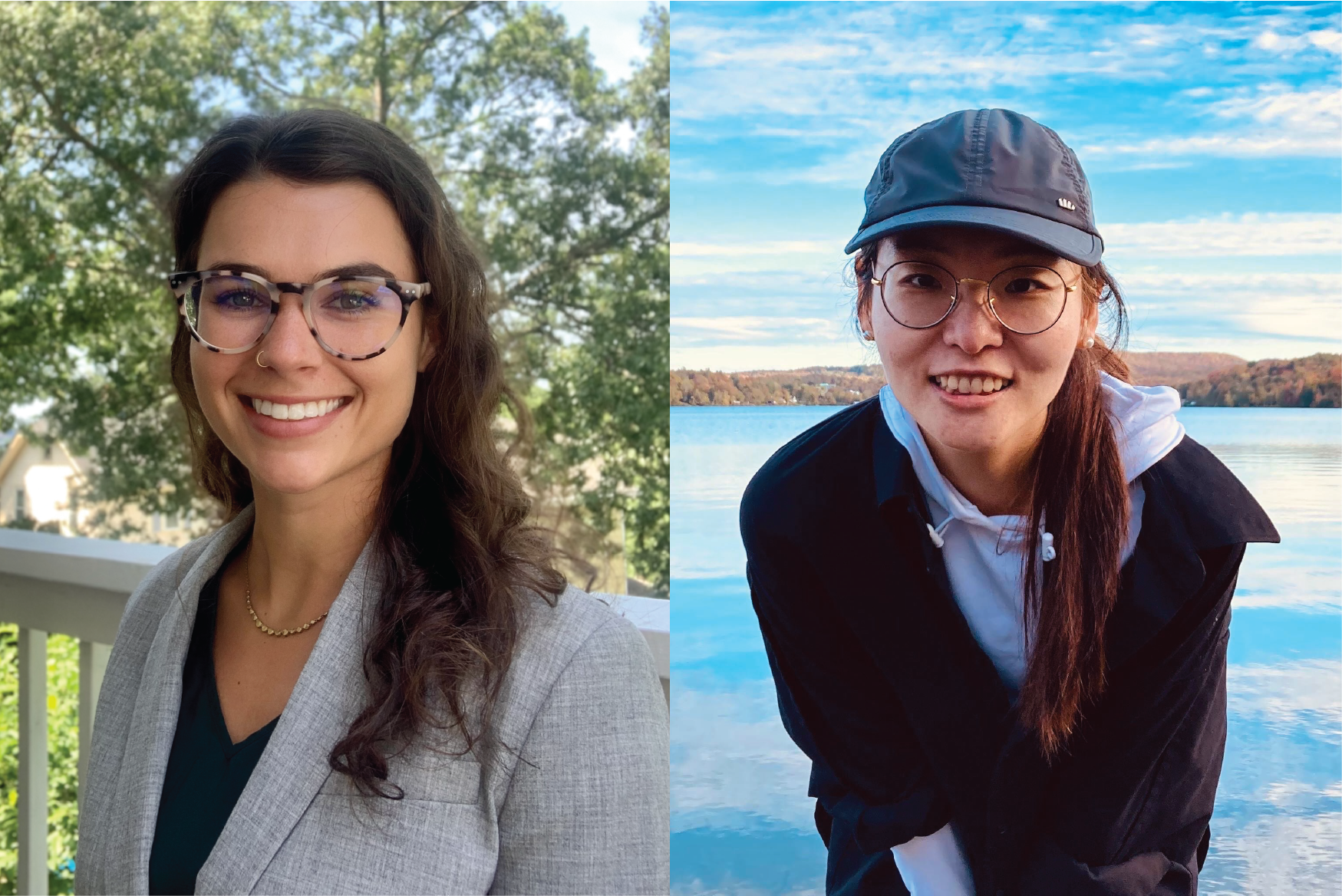
Alyssa Richman, PhD, and Cong Gao, PhD
The University of Vermont (UVM) Cancer Center is proud to facilitate the training of the next generation of cancer scientists. Recently, Alyssa Richman, PhD, and Cong Gao, PhD, successfully defended their PhD dissertations, joining previous trainees in the cancer workforce. Richman and Gao, both graduate students in the lab of Seth Frietze, PhD, contributed substantial work to our understanding of epigenetic changes and their potential as therapeutic avenues. Epigenetic changes are reversible changes to DNA that result in alterations in gene expression. The dissertation work completed by Richman and Gao provides important insight into how these reversible changes could serve as novel therapeutic targets.
Drawn to the supportive environment at UVM, Richman joined the Frietze lab to pursue her passion for cancer research. Recognizing the need to develop treatments that can effectively target cancer cells while preserving the integrity of healthy cells, Richman saw the opportunity to use innovative DNA sequencing-based approaches to identify cancer-specific therapeutic targets. Her research focused on acute lymphoblastic leukemia, the most common childhood malignancy. Richman studied how a tumor suppressor, Ikaros, which is mutated in high-risk acute lymphoblastic leukemia, impacted leukemia cell growth. She conducted a comprehensive analysis using multiple epigenetic datasets to evaluate the effect of Ikaros on gene regulation and epigenetics. The characteristic epigenetic alterations caused by Ikaros in leukemia cells provide insight into disease pathobiology, opportunities for biomarkers, and candidate targets for personalized therapies. Her work was supported in part by a Cancer Center Summer Student Fellowship, which provided valuable funding and resources for her research. In addition to her individual studies, she co-facilitated a journal club initiated last fall, bringing together the Cancer Cell and Redox Biology and Pathology groups to discuss current advances in cancer biology research. Richman is in the process of preparing multiple manuscripts to share this work and recently moved to Boston to continue her work in the biomedical research field.
With a desire to conduct interdisciplinary research in a collaborative environment, Gao joined the Frietze lab to study epigenetic modifications in breast cancer progression. Gao focused on histone modifications which she compares to bookmarks in a book. The bookmarks or histone modifications are important for knowing where you left off. If a bookmark location is altered it will change the readers understanding of the story. In the case of histone modifications, these changes alter gene expression, causing genes to become hidden or overactive. Gao’s dissertation work provides a detailed map of histone modifications that occur in breast cancer progression, identifying critical regulatory elements and potential therapeutic targets. Her work highlights how the reversibility of epigenetic changes could allow for “turning off” cancer promoting genes without altering the underlying genetic code. To explore this therapeutic potential further, future work will validate the findings of Gao’s study in clinical samples. Gao credits the UVM Cancer Center for providing critical access to advanced sequencing technologies and bioinformatic analysis tools that supported her work. Since completing her PhD, Gao has continued her research in epigenetic mechanisms of cancer and is seeking bioinformatic scientist opportunities. In Gao’s words, “a journey in cancer research is a testament to the power of curiosity, collaboration, and perseverance”.